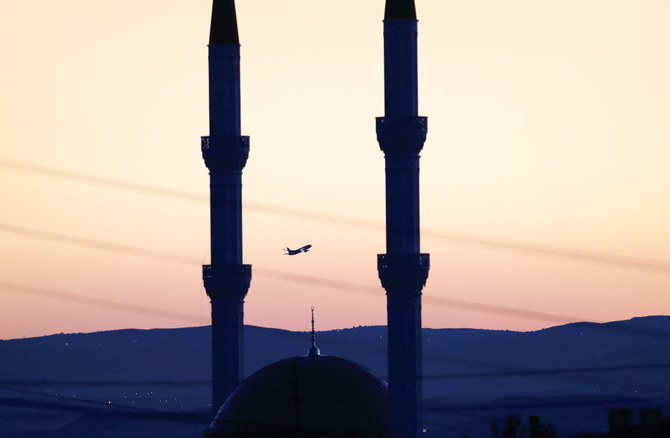ISTANBUL: Turkish central bank head Murat Uysal has stuck to the rate-cutting script since President Recep Tayyip Erdogan hired him to lift Turkey out of a recession and currency crisis.
A year later with the COVID-19 pandemic now crushing the lira, some traders and analysts say they think Uysal will instead hike rates to head off a deeper crisis.
Erdogan, whose 17 years in power have been marked by cheap credit and booming growth, has repeated the unorthodox view that high rates cause inflation and sacked Uysal’s predecessor for not following his instructions.
The central bank did not immediately comment on expectations of higher rates or on political pressure. Uysal said last week that policy was in line with the central bank’s inflation forecasts and he has said in the past it has policy independence.
Investors, analysts and sources close to Turkey’s central bank say that the most direct solution to the lira’s costly slide, in the form of a rate hike, would only happen as a last resort.
Erdogan’s office was not available to comment, while a spokesman for the Treasury did not immediately respond.
After the central bank slashed rates to 8.25 percent from 24 percent in less than a year, such a quick policy turn-around would likely need the government’s tacit approval, analysts say.
Nevertheless, money market traders have been adding to bets in recent days that Uysal, who halted an aggressive year-long easing cycle in June, has little choice but to tighten policy soon to avoid a second currency crisis in as many years.
HIGHLIGHTS
Lira hits historic low vs dollar as volatility returns.
After aggressive easing, traders bet on policy reversal.
Previous central bank head sacked for ignoring Erdogan.
The lira hit a historic low on Thursday and is down nearly 20 percent versus the dollar so far this year, despite the greenback’s own weak performance.
While the central bank’s policy rate is 8.25 percent, the November money market pricing for three-month lending is at 10.75 percent, implying 250 basis points of tightening by year-end.
Some fear that in a worst-case scenario, interventions to stabilize the lira lose steam as the central bank’s reserves run thin, prompting further depreciation, inflation and a ballooning current account deficit.
“We have a lot of ingredients here to have a full blown crisis,” said Nikolay Markov, senior economist at Pictet Asset Management. “The hope is to have a more proactive policy response from the central bank.”
Turkish annual inflation is high at near 12 percent, leaving real rates deeply negative for depositors in lira, a factor which has hastened the currency’s slide.
Economists polled by Reuters before the latest lira selloff expected more rate cuts once things cooled down.
But after two weeks of volatility, Goldman Sachs now expects 175 points of hikes by year end. Pictet’s Markov said that Turkey boasts the biggest gap among major emerging markets between the current policy rate and where it should be based on inflation and other factors.
Ankara is running out of alternatives to monetary policy.
The central bank’s gross FX reserves have dwindled to $51 billion from $81 billion this year, official figures show.
Data and the calculations of traders show the drop is in part due to the central bank and state banks selling some $110 billion in dollars since last year, including an acceleration in recent weeks, to stabilize the lira.
Ankara’s appeals for funding from the US Federal Reserve and other central banks have only yielded a deal with Qatar.
Rate hikes are only an option if more foreign funding cannot be found, a senior Turkish banker said, adding: “We do not anticipate a rate rise unless there is no other option.”
















